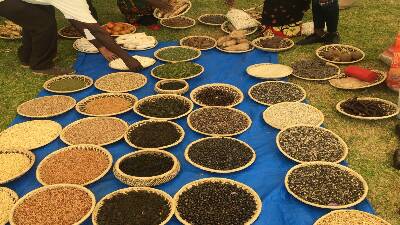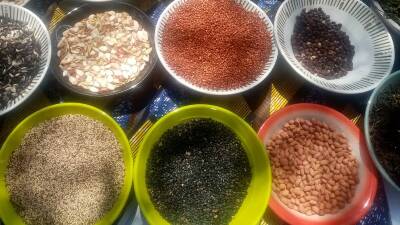Zambia: Farmers challenge corporate-driven hybrid seeds policy
A government program in Zambia to improve the welfare of peasant farmers is having the opposite effect, worsening malnutrition and driving communities further into poverty.
Peasant farmer communities are resisting the program – which promotes mono cropping and use of synthetic fertilizers and pesticides – by conserving, innovating and promoting traditional eco-friendly farmer-managed seed systems.
“We realized that indigenous seeds actually evolve and they’re able to adapt to the changing climate and are actually more resistant to climate change and to the new pests that are coming on board,” says Simon Mwamba from FIAN Zambia.
Since 2002, Zambia’s state-run Farmer Input Support Program (FISP) has promoted farmers’ uptake of hybrid seeds, which cannot be recycled for the next farming season due to intellectual property rights and loss of vigour.
This has led many peasant farmers to focus solely on maize production and become dependent on seed and chemical production companies to replace seeds each year, increasing their food insecurity.
“The moment the government embarked on subsidies, there was no support for farmer-managed seed systems,” says Simon Mwamba. “So there’s been an erosion of the local seed systems and the local biodiversity.”
Growing numbers of communities are rejecting the FISP and focusing on traditional farming practices based on agroecology and food sovereignty as shown in this video from FIAN Zambia:
FIAN Zambia calls on the Zambian government to:
- consult with different actors, including peasant farmers and their organizations, to redefine Zambia’s agricultural system for a sustainable, just and resilient seed system by emphasizing sustainable farming approaches such as agroecology which promote the production of a diverse and healthy range of food;
- support the establishment of farmer-managed seed banks at community level for multiplication, saving, use, exchange and sale among peasant farmers. Seed banks should be managed by community-led rules and embedded in legal measures that effectively respect and protect farmers’ rights over their seeds, particularly the rules that define access to seeds that are managed collectively;
- put in place a legal framework that promotes and protects farmers’ seed systems;
- empower small-scale farmers through capacity building trainings for sustainable agricultural practices.


